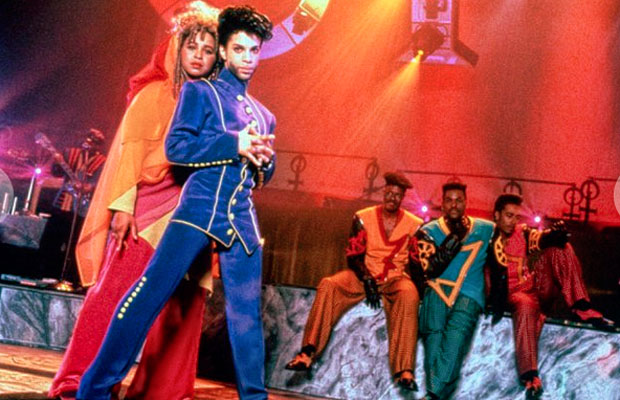Prince, who died Thursday at 57, was famously prolific, and that was the crux of the conflict between the musician and the record label where he had his greatest success.
Prince’s battle with Warner Bros. Records was a cloud that overshadowed his musical achievements in the public eye in the early to mid-1990s. On the heels of a red-hot decade, Prince signed a megabucks long-term deal with the label in 1992, but by the following year had changed his name to an unpronounceable symbol.
Not long after that, he filed a lawsuit against Warners and began appearing in public with “SLAVE” written on his face to protest what he saw as an unfair business relationship with the music giant.
“The much-talked about conflict with the company was based on his being extremely prolific,” said Bob Merlis, who spent 30 years with Warner Bros. Records as a senior PR exec.
Merlis recalls Prince as a shy and soft-spoken man who only came alive on stage and in the recording studio. He was loathe to do media interviews even in the early days when his career was still building. “It was hard for him,” Merlis recalls. “I remember him once telling me ‘I speak in musical terms. I could have a great conversation with Miles Davis.’ “
When Prince changed his name, Merlis recalls getting images of the symbol transferred to what were then five-inch floppy disks and mailed out to key music publications for use in articles. But most outlets didn’t give much ink to the elaborate symbol, opting for the “The Artist Formerly Known as Prince” sobriquet – which Merlis reeled off by its TAFKAP acronym from memory.
“We tried to be open-minded,” recalls Merlis, who now runs his own MFH music PR agency. “It was not in our interest to be confrontational with him.”
Ultimately, the biggest fight boiled down to Prince’s insistence on releasing a steady stream of new music without regard to marketing or sales strategies.
“His attitude was, ‘I have a lot to say musically and I want to say it right now,’ “ Merlis recalls. “While we were working on (promoting) the second single from the current album, he’d already recorded the next album and wanted us to put it out.”
After settling his contract in 1996, Prince released the three-disc set “Emancipation” on his NPG Records imprint. He maintained a steady stream of releases for the next decade.
Despite the challenges Prince had with Warner Bros., Merlis remembers Prince as being a very “contemplative” person in their professional encounters. Neither his quirks and manner were changed much by the enormous success he enjoyed in the 1980s with smash albums including 1982’s “1999” and 1984’s “Purple Rain.””He was the same person even though he had a bigger audience,” Merlis recalls. “He was just always very driven. The main thing for him was that he wanted to deliver an extraordinary performance every time.”
Cynthia Littleton © 2016 Variety Media, LLC, a subsidiary of Penske Business Media; Distributed by Tribune Content Agency, LLC

